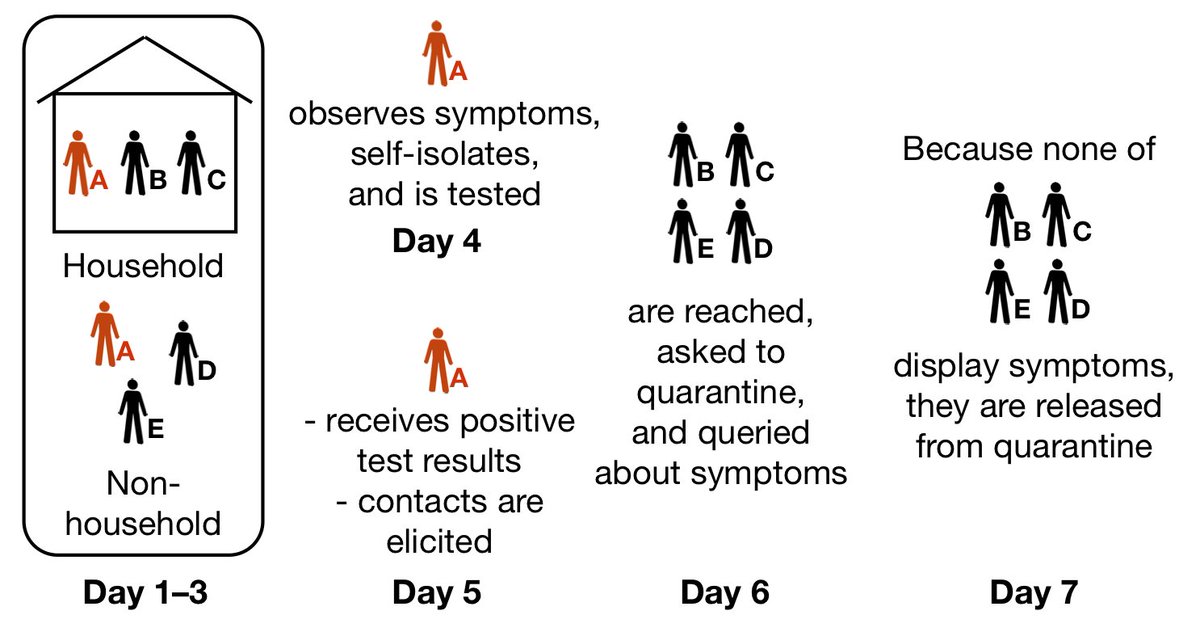Preprint: can we contact trace with less quarantine? Reducing the duration of quarantine could increase willingness to participate. https://www.medrxiv.org/content/10.1101/2020.11.16.20227389v2 and https://www.nber.org/papers/w28135 . Work with @MLCharpignon, Jon Gruber, @MilindTambe_AI, @maiamajumder. (1/9)
Key idea: by monitoring contacts of the index case for symptoms during the first few days of quarantine, we can estimate how transmissive the index case is. If we do not observe symptoms, we release the cluster from quarantine. We call this risk-based quarantine (RBQ). (2/9)
We evaluate the effectiveness of RBQ in a branching process model that accounts for transmission heterogeneity—the variation in the number of infections caused by an infected individual. For SARS-CoV-2, it is estimated that ~20% of cases cause 80% of infections. (3/9)
We are unable to explain this level of heterogeneity using variation in the number of contacts alone—the 20% of individuals with the most contacts have only 50% of all contacts. A substantial individual effect is required to achieve the observed level of variation. (4/9)
We interpret this variation as a combination of biological and behavioral factors. In our model, 10% of the infected population are highly transmissive. Secondary attack rates for these individuals are in line with those observed at superspreading events: 35%+. (5/9)
It is difficult to identify these individuals preemptively. We instead focus on identifying them retrospectively through the symptoms they cause in their contacts. Doing so allows us to make contact tracing systems more efficient. (6/9)
We find that RBQ is slightly less effective than contact tracing with a two-week quarantine. By adding a few more conservative features (e.g., exit testing, app-based monitoring of symptoms), RBQ achieves the same reduction in transmission with 32% less quarantine. (7/9)
Why does this matter? Willingness to participate in contact tracing is low. The expense of quarantine appears to be a key barrier to participation. (8/9)
In addition, RBQ is effective in regimes where access to testing is limited as no testing is required among contacts. (9/9)

 Read on Twitter
Read on Twitter



